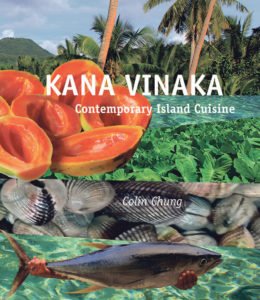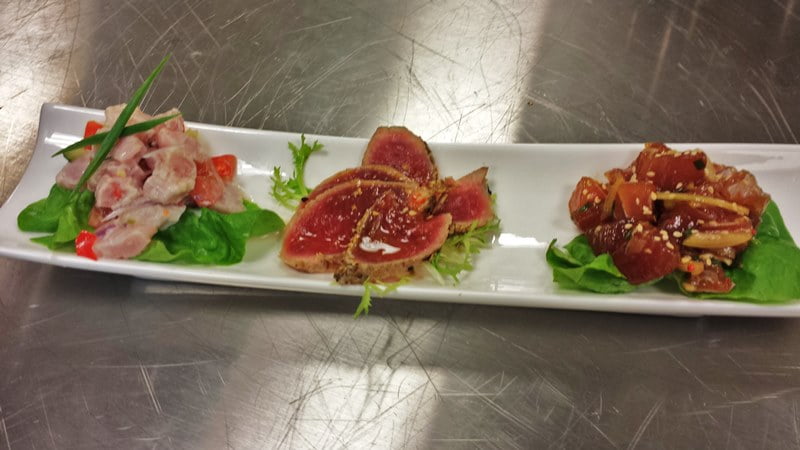GLOBETROTTING Hawaiian chef Colin Chung is putting together a cookbook which focuses entirely on how to conjure up exotic dishes by utilising local ingredients.
He is a man on a mission. A journey, he says, began 40 years ago.
Over the past four decades, Chung has travelled to Fiji many times — evident by the ease with which he rattles off the native names for fruit, seafood and vegetables — and is intimately familiar with local flavours and how best they can be served on a plate.
“I am working on a book called Kana Vinaka which tries to show how to use local food in a more contemporary manner,” he shared while preparing a sumptuous feast at Shangri-La’s Fijian Resort & Spa.
“This is something I have been passionate about because Fijian flavoured cuisine is still an undiscovered gem.
“And over the many years I have been travelling here, I have tried to change the mind-sets of chefs into using more local produce and even to incorporating traditional style of food preparation into their dishes.
“The purpose of the book is to entice more hotels to utilise local ingredients in their dishes and to reflect this on the menu.”
Chung believes local food — whatever everyone eats at home — can be cajoled with a little bit of finesse into a meal worthy of an international menu.
“It’s not just about using local produce as much as possible, it’s also about using it in a contemporary way.
“If we serve food straight from the lovo night after night, tourists would lose interest and not find it appealing.
“But if we prepare the food and serve it in a way they’re familiar with then we might be on to something.”
Chung said because of the popularity of cooking shows and competitions where ordinary men and women were given access to tricks of the trade via the internet, a lot more people were cooking exotic dishes at home.
“The whole scenario has changed and visitors to Fiji are very aware of food and how it is prepared, so the onus is really on local chefs to up the ante by introducing local food to the menu by giving it an international twist.”
Chung says he hopes Kana Vinaka will be used in catering schools, by the general public and by people in the tourism industry.
“I want our young chefs, from their inception into the industry, to be open to using local food in a contemporary way.”
Shangri-La’s Fijian Resort & Spa general manager Craig Powell said bringing Chung to the popular family retreat was consistent with the hotel’s vision of giving guests a complete holiday experience.
“We have a beautiful property, awesome staff and wonderful facilities and when you combine that with a memorable dining experience, then that well-deserved vacation becomes all the more special,” he said.
“Colin is passionate about using local produce and training our people to use local produce to create wonderful dishes,” Mr Powell said.
“He brings a new energy to how we want to do things and he has a keen interest in the whole supply chain — from the farmer that plants the produce right through to when it is presented on a plate.
“And this is something that we are very committed to doing. Apart from developing a good business, Shangri-La is very big on assisting the local community — whether it’s by purchasing local produce, protecting and sustaining the environment or improving the lives and livelihoods of those around us.”
First publisherd in Fiji Times
Felix Chaudhary
Sunday, December 14, 2014

KANA VINAKA
Kana vinaka means ‘thank you for the food’ in Fijian, and is the title of Colin’s book about contemporary Fijian cuisine. Throughout his forty years teaching and consulting in the islands, Colin has always promoted the use of fresh, local produce and the development of a more contemporary style of cuisine using the outstanding local produce.
And this is the main focus of Colin’s 102-recipe cookbook which shows practical and tasty ways to use local sustainable produce rather than imported products.

